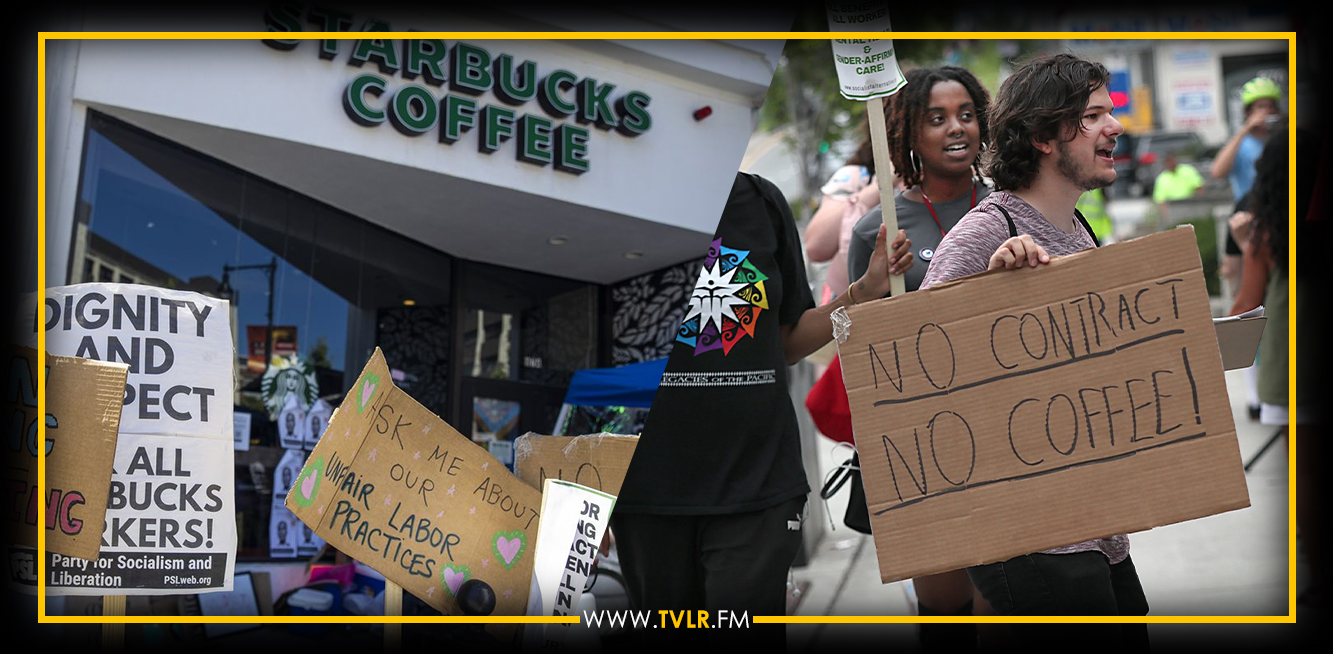The Starbucks union at 874 Commonwealth Avenue, Brookline, Massachusetts, never intended to start the longest strike in Starbucks history. It had seemed like an unlikely place for any unrest. Though the store had unionized last March, it had had a friendly relationship with its manager. Things were good until less than three months later, 874 Commonwealth was assigned a new temporary manager, Tomi Chorlian.
According to a publicly available letter the workers wrote to the management, within two hours of stepping foot into 874, Chorlian had begun to create a hostile work environment. She pulled down a pride flag that the staff had put up, to the consternation of the many LGBTQ employees, and it only escalated from there over the course of the next month. She contaminated store blenders with peanuts, which was careless of the health of one employee with a peanut allergy, and members of the public, in addition to being against corporate policy. One staff member suffered a bereavement, and again, in violation of corporate policy, which offers bereavement pay and up to four days away from work, Chorlian insisted that the partner use their vacation time to travel to the funeral. Finally, she cut people’s hours while hiring five new baristas. Chorlian refused to give anyone more than eighteen hours, most likely to avoid having to give anyone benefits, since benefits kick in at twenty hours of work per week. But even though she cut hours, she required staff members to have a minimum availability of thirty-six hours per week. “Tomi definitely used minimum availability against people,” said Violet, a union worker who did not give their last name.
It took less than five weeks of this for the store to revolt. The strike vote was unanimous. The union leadership drew up the paperwork and the strike began on July 19, 2022. They had no idea they were going to have to go on strike for 64 days. “We put it together in a weekend. I was mentally prepared for three days,”, said Spencer Costigan, schedule manager and a leading organizer. “I didn’t expect management to care this much about this manager. In retrospect, she was there to punish us.”
What made it hard to hold the line was the fact that it had to be a 24/7 picket. The Teamsters had a contract to deliver supplies to the store, but due to the terms of their own union, they could not cross the picket line of any other union. The lack of supplies meant that no scab would be able to reopen the store so long as the picket held. The twenty-person union would have to scrounge up at least two people at all hours of the day to maintain the strike.
Fortunately, the community leapt into action.
The 874 store put out a call to the Boston Democratic Socialists of America, the Boston Labor Council, and other unions in the area. Word got around. The picket set up a pavilion with prominent signs and told passersby that they were on strike for unfair and illegal workplace practices, would they like to hear more? Plenty of people did. The group chat set up to coordinate picketing shifts ballooned to 300 at its peak, estimates Costigan, and some of the most diehard picketers ended up being people who had seen the picket from the sidewalk. One of them was a woman who found it so inspiring she took the 1-4AM shift several nights a week. The Boston Labor Council put money into the strike fund, and so did individual donors from the public. At one point, a Yiddish women’s choir showed up to the line to boost the spirits of the strikers. The Boston University Grad Student Union sent people, and the 874 union repaid them later by showing up to their events.
After 64 long, stressful days, Starbucks caved. Chorlian and the minimum availability policy were both out, and the union’s lives have improved in additional ways too. “We got so much more power for ourselves. They’re more afraid to walk all over us,” said shift manager Taylor Dickerson.
Costigan said their success in convincing people to strike lies in empathy and being willing to educate. “Don’t jump to the ‘u’ word too quickly. One of the most convincing things you can do is care. Listen to the kinds of issues people have. You are not doing this just to talk at them. If possible, they are talking more than you are.” The one thing they said they’d change if they had to do it all over again is getting the core group in charge of ensuring the picket was always manned set up earlier.
Dickerson found it hard to pinpoint any particular thing she’d change in retrospect: “There were so many game-time decisions.” But she does have one piece of advice about unionizing: “Just do it. You always need a union.”
While the strike is over for now, Starbucks made an interesting decision to appoint a new regional manager who oversaw the ending of a 46-day strike at a New York shop. Regardless, Costigan isn’t worried. “I have faith that we are aggressive enough, we are mean enough, and we are disciplined enough. Every time they break the law, it only makes me a more ardent organizer.”
Meanwhile, Alabama has its own problems with Starbucks abusing its employees. To read more of The Valley Labor Report’s reporting, go here:
Home
Home
